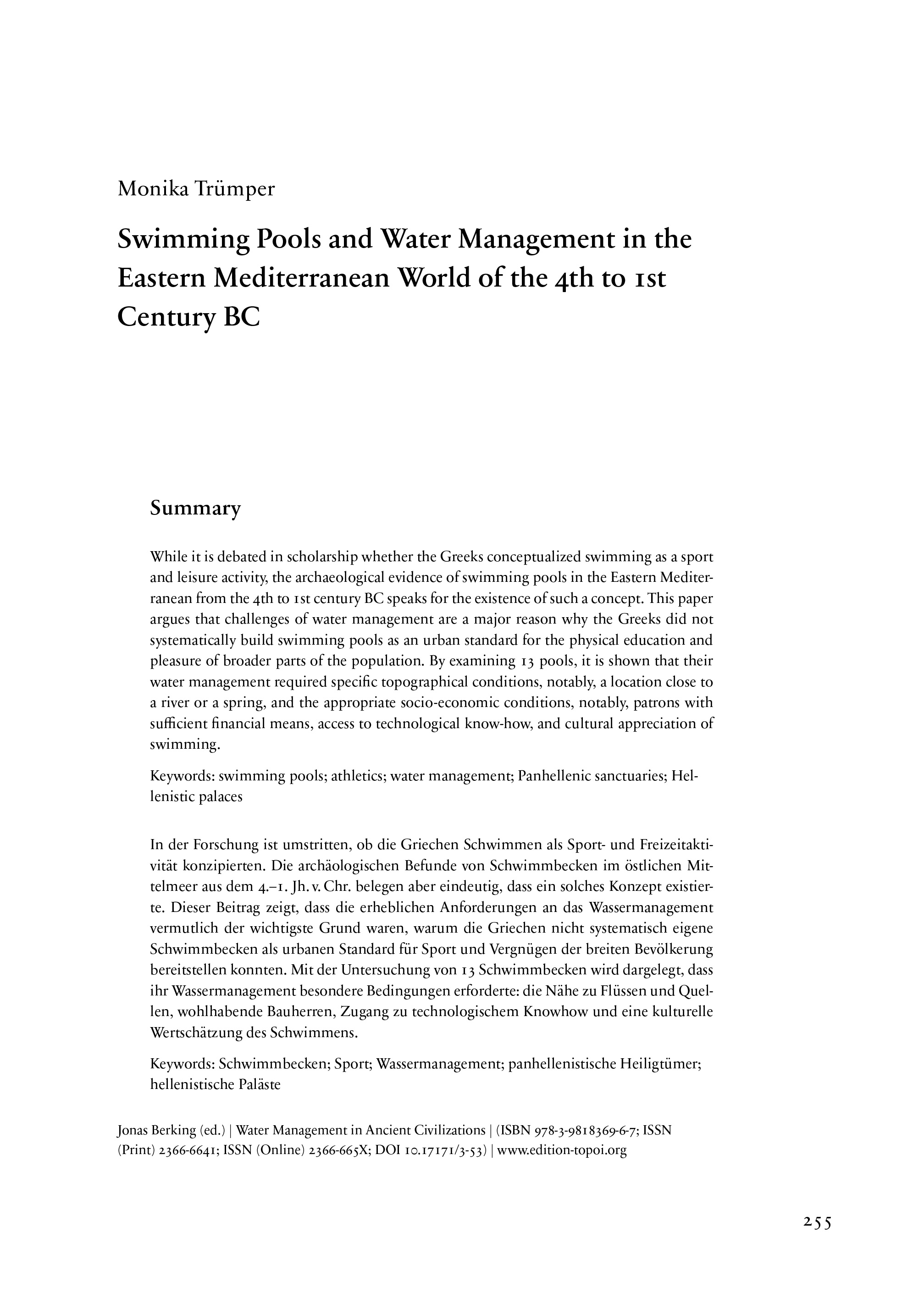Swimming Pools and Water Management in the Eastern Mediterranean World of the 4th to 1st Century BC
While it is debated in scholarship whether the Greeks conceptualized swimming as a sport and leisure activity, the archaeological evidence of swimming pools in the Eastern Mediterranean from the 4th to 1st century BC speaks for the existence of such a concept. This paper argues that challenges of water management are a major reason why the Greeks did not systematically build swimming pools as an urban standard for the physical education and pleasure of broader parts of the population. By examining 13 pools, it is shown that their water management required specific topographical conditions, notably, a location close to a river or a spring, and the appropriate socio-economic conditions, notably, patrons with sufficient financial means, access to technological know-how, and cultural appreciation of swimming.
In der Forschung ist umstritten, ob die Griechen Schwimmen als Sport- und Freizeitaktivität konzipierten. Die archäologischen Befunde von Schwimmbecken im östlichen Mittelmeeraus dem 4.–1. Jh. v. Chr. belegen aber eindeutig, dass ein solches Konzept existierte. Dieser Beitrag zeigt, dass die erheblichen Anforderungen an das Wassermanagementvermutlich der wichtigste Grund waren, warum die Griechen nicht systematisch eigene Schwimmbecken als urbanen Standard für Sport und Vergnügen der breiten Bevölkerung bereitstellen konnten. Mit der Untersuchung von 13 Schwimmbecken wird dargelegt, dass ihr Wassermanagement besondere Bedingungen erforderte: die Nähe zu Flüssen und Quellen, wohlhabende Bauherren, Zugang zu technologischem Knowhow und eine kulturelle Wertschätzung des Schwimmens.

